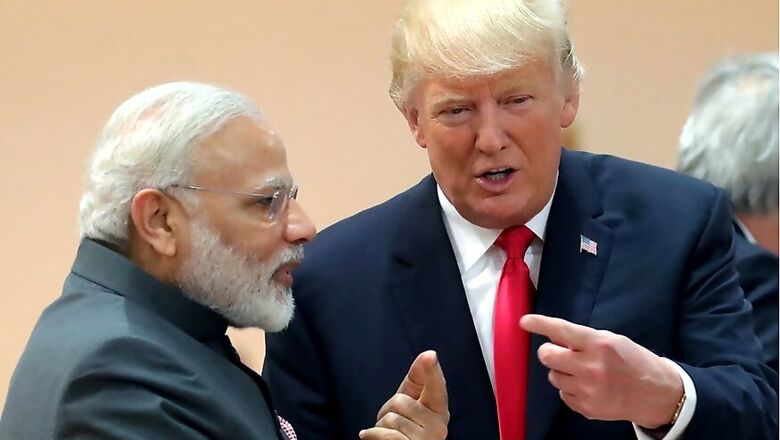
views
Manila/New Delhi: India, Australia, Japan and the US on Sunday agreed that "a free, open, prosperous and inclusive" Indo-Pacific served long-term global interests, giving impetus to an emerging quad of democracies amid China's rising military and economic power.
It was the first dialogue of the quadrilateral formation of the democracies in which anti-terrorism cooperation was also discussed.
An External Affairs Ministry statement in New Delhi said foreign officials from India, Australia, Japan and the US met in the Philippines capital and held consultations "on issues of common interest in the Indo-Pacific region".
"The discussions focused on cooperation based on their converging vision and values for promotion of peace, stability and prosperity in an increasingly inter-connected region that they share with each other and with other partners," the statement said.
"They agreed that a free, open, prosperous and inclusive Indo-Pacific region serves the long-term interests of all countries in the region and of the world at large."
The officials also exchanged views on addressing common challenges of terrorism and proliferation linkages impacting the region as well as on enhancing connectivity.
Indian officials highlighted India's Act East Policy as the cornerstone of its engagement in the region.
The four countries are working to revive their quadrilateral dialogue.
The meeting was held as Prime Minister Narendra Modi arrived in Manila on Sunday on a three-day visit to the Philippines for the 15th India-Association of Southeast Asian Nations (Asean) meet and the 12th East Asia Summit on Tuesday.
The Association of Southeast Asian Nations (Asean), comprising Brunei, Cambodia, Indonesia, Laos, Malaysia, Myanmar, the Philippines, Singapore, Thailand and Vietnam, has emerged as a key cornerstone of New Delhi's foreign policy, with its Look East Policy, launched by then Prime Minister P.V. Narasimha Rao in 1992.
The Modi government has turned it into the Act East Policy to focus on increased engagements with the regional bloc.
The annual East Asia Summit is held by leaders of the Asean countries and those of Australia, China, India, Japan, New Zealand, Russia, South Korea and the US.
Even as India, the US and Japan have a trilateral dialogue mechanism in place for issues relating to the Indo-Pacific region, Japanese Foreign Minister Tara Kono said in October that Tokyo was for a top-level quadrilateral dialogue that would also include Australia.
Kono said the idea was for the leaders of the four countries to promote free trade and defence cooperation across a stretch of ocean from the South China Sea, the Indian Ocean and all the way to Africa.
The emerging quadrilateral is seen to counter China's aggressive maritime expansion under its Belt and Road initiative. China's plans would cement a sphere of influence for Beijing well beyond Asia.
India responded to Kono's comments by saying that New Delhi was open to work with like-minded countries that advance India's interests.




















Comments
0 comment